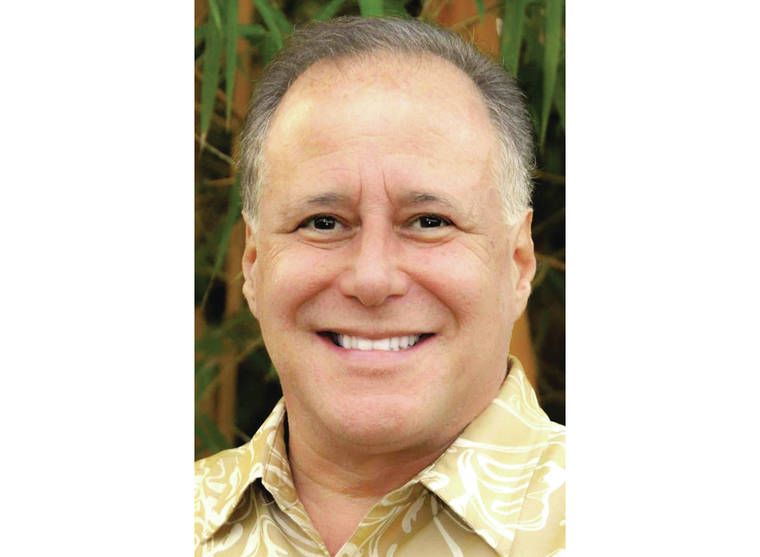Minimum wage boost advances: Rate would go from $10.10 per hour to $13 by 2024
An effort to increase Hawaiis minimum wage is moving forward.
An effort to increase Hawaii’s minimum wage is moving forward.
Legislators in the state House Labor and Public Employment Committee and Finance Committee on Friday recommended House Bill 2541 be passed with amendments.
ADVERTISING
The original draft of the legislation calls for the minimum wage to increase to $11 an hour at the start of 2021, to $12 at the start of 2022, to $12.50 in 2023, and ending at $13 an hour in 2024.
The current minimum wage in the state is $10.10 an hour.
HB 2541 also would make the state earned income tax credit refundable and permanent, as well as increase and amend the refundable food/excise tax credit.
The bill is part of a legislation package announced in January by members of the House and Senate and Gov. David Ige. The package of bills aims to tackle critical economic issues that have long-plagued Hawaii’s residents: income inequality, affordable housing and early education.
The bills address issues highlighted in an Aloha United Way ALICE — asset limited, income constrained, employed — report which looked at economic hardships facing working individuals and families in Hawaii.
In testimony submitted prior to the committee hearings, Victor Lim, legislative lead of the Hawaii Restaurant Association, said the organization, which represents 3,500 restaurants in Hawaii, is “very encouraged” by the effort of the governor and legislative bodies to support the wage bill.
“We and most of the business community have been saying for years that we needed to look at all of the above areas in helping the working families instead of just looking at the minimum wage alone,” he wrote. “We are further encouraged by the minimum wage schedule as proposed as being palatable, but it is missing the tip credit component that has been part of our Hawaii statute for years.”
The Chamber of Commerce Hawaii also supported the measure.
“The chamber and Hawaii’s business community are committed to contributing to holistic solutions that make Hawaii affordable for our working families and recognize the importance of being part of the collective effort to ensure the challenges are met for the greater good of our state,” Sherry Menor-McNamara, president and CEO of Chamber of Commerce Hawaii, said in a news release last week. “The Finance and Labor Committees’ current draft of the bill balances economic relief for our most vulnerable residents with the continued support of Hawaii’s local businesses, which drive our state’s economy.”
State Rep. Joy San Buenaventura of Puna, one of more than 40 legislators to co-sponsor HB 2541, said she’d personally like to see the minimum wage rise to $15 an hour, “but I understand that with allowing for the earned income credit, which specifically targets the ALICE families … that we actually help those that actually need it …”
The hope is that with the total legislative package, the state can “prevent these ALICE families from falling into homelessness,” she said.
State Sen. Russell Ruderman of Puna, a business owner himself, supports a minimum wage increase but also would like to see that rate higher than what is proposed.
“As an employer, legislator and as a human being, I really do believe that it’s worth money to solve some of our problems in society, and one of the biggest problems we have is poverty,” he said. “This is the one tool we have to make a really big change in the poverty level in Hawaii.”
Legislation he introduced in the Senate to raise the minimum wage to $15 an hour did not get a committee hearing.
“I believe that we are really failing in our responsibility thinking that $13 in four years is enough,” he said. “None of the advocates dealing with poverty, homelessness (and) wage fairness think that’s enough.”
Ruderman said Hawaii has the highest cost of living in the nation and the “bluest state Legislature. And as Democrats, we are supposed to be on the side of working people.”
Other areas with a similar cost of living already have increased the minimum wage to $15 an hour, he said.
“This idea that, because we’re including some other tax benefits, that therefore $13 is enough — that’s bad optics and bad arithmetic,” said Ruderman, adding that those tax credits don’t offset the lower minimum wage proposal.
Ruderman and state Rep. Tina Wildberger of Maui on Tuesday announced they will both pledged to donate $4,000 of their salaries, approximately the difference between $13 and $15 per hour annually, until lawmakers raise the minimum wage to $15.
Their contributions will pay off school lunch debt for students in their districts.
“A $15 (per) hour minimum wage places most of the burden on the private sector where it belongs, instead of continuing to burden our state coffers with public assistance and the costs of homelessness, “Ruderman said. “We have exactly one tool in our toolbox to dramatically reduce poverty in our state: a major increase in the minimum wage. This will do more to address homelessness than all the multi-million-dollar proposals we are considering.”
Email Stephanie Salmons at ssalmons@hawaiitribune-herald.com




